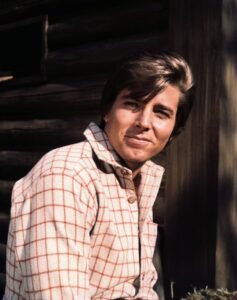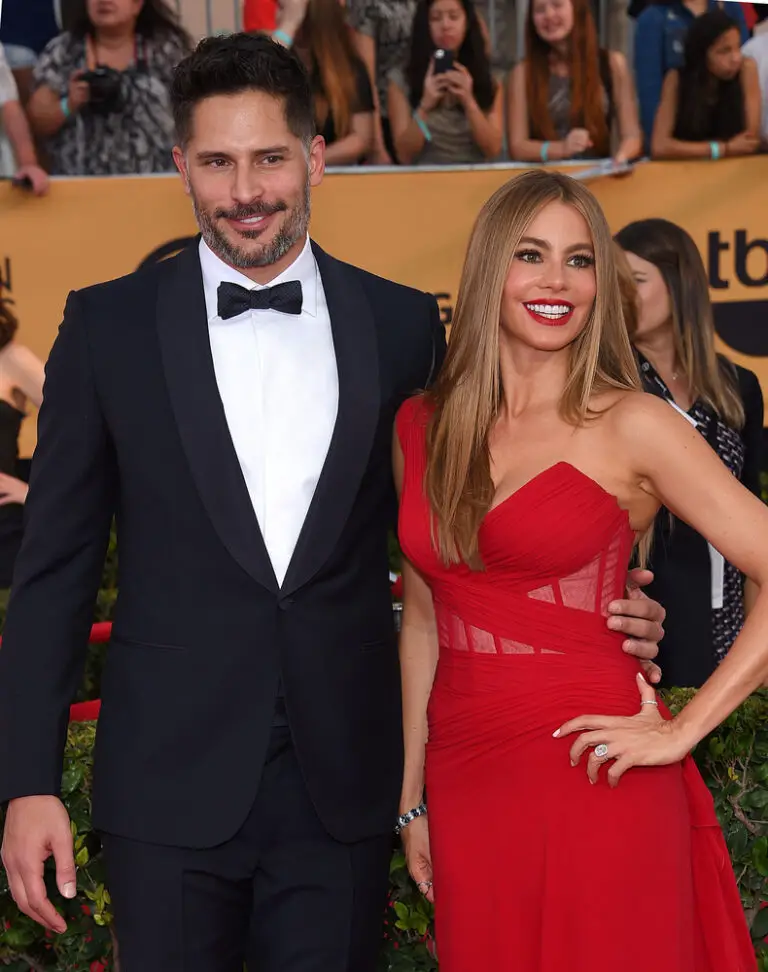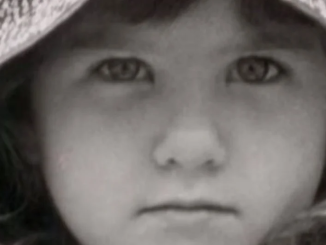Bobby Sherman was one of the biggest music stars during the 1960s and 1970s. Back then, it seemed like everyone had a crush on him.
He released several albums, became a well-known actor, performed for thousands of fans, and sold millions of records. But even with all his success, Sherman made the surprising decision to leave show business for good while he was still famous.
It wasn’t because he felt like he wasn’t talented anymore. Instead, he left for a bigger purpose—he wanted to save lives.
Here’s everything you need to know about the legendary Bobby Sherman!

Bobby Sherman was born on July 22, 1943, in Santa Monica, California, and grew up in Van Nuys, near Los Angeles.
**Bobby Sherman – Early Life**
By the time he was 11, Sherman had learned to play the trumpet and later mastered other instruments like the piano, trombone, and guitar. He attended Birmingham High School, where he joined a band and developed a strong interest in singing. Over the years, Sherman reportedly learned to play an impressive 16 instruments.
After graduating high school in 1961, he began studying at Pierce College in Woodland Hills, near Los Angeles. It was during this time that a relationship changed his life forever.
Sherman was studying child psychology at Pierce College when he met his first girlfriend. One night, she invited him to a cast party for *The Greatest Story Ever Told*.
By then, Sherman had already started performing music with different bands around the San Fernando Valley, and many people recognized his talent. At the party, Sherman didn’t hesitate to showcase his voice.
“I was always the guy who had the gumption to get up and sing in front of people,” he later said.

At the Hollywood party, Bobby Sherman had some friends playing in the band on stage, which made it easier for him to get up and sing. He performed Ray Charles’ “What I’d Say” in front of the crowd.
**Discovered at a Hollywood Party**
Since it was a Hollywood party, many famous people from the entertainment industry were there, including stars like Sal Mineo, Natalie Wood, and Jane Fonda.
After his performance, they recognized his talent. Sal Mineo, especially, took notice and decided to mentor him.
“People were saying things like, ‘Who’s handling you?’ I had no idea what that meant,” Sherman recalled.
“Well, I was just a kid from Van Nuys, and I was like, ‘What do they mean, handling me?’ Then I realized they were talking about representation.”
Sherman quickly got a taste of Hollywood life. Just three days later, an agent—who had heard about him from one of the party guests—sent him to an audition. It was for a new television show called *Shindig*, and Bobby landed a featured role.
His time on *Shindig* lasted only two years, but that was enough to get him noticed. By then, people across the country had fallen in love with him, and job offers started pouring in.

When *Shindig* was canceled in 1966, Bobby Sherman guest-starred on several other shows, including *The Monkees*, *Honey West*, and *The FBI*. He was starting to become a heartthrob in Hollywood, but it was in 1968 that he really made it big.
**Bobby Sherman – Music, Songs, Albums, Acting**
Sherman played the stuttering character Jason Bolt in *Here Come The Brides*, staying on the show for two full years. By the end of his time on the show, his character had lost his stutter, but the show was eventually canceled.
Jason Bolt became very popular with fans, and Sherman realized this during a telethon in Buffalo. Suddenly, he wasn’t just a rising star; he had become famous.
“The show had just started, and we didn’t even have any records out yet,” Sherman told *Tulsa World*.
“Greg Morris from *Mission: Impossible* and Robert Brown from *Here Come The Brides* and I were asked to do the telethon. It was going really well when the fire marshal came in and said, ‘We have a problem. You need to come up to the second floor; you have to greet some people.’
“They opened up a window, and I looked out to see the parking lot of the TV station filled with people. It was a sea of faces,” he recalled. “It was just unbelievable. That was when I realized something big was happening.”
The following year was a bit of a “limbo” for Bobby. However, it was during this time that he began focusing on writing songs and experimenting with his eight-track recording equipment.

Bobby Sherman became a professional singer, even though he hadn’t received much recognition for his voice yet.
**Bobby Sherman – Family, Wife, Children**
From 1969 to 1971, Sherman’s young fans bought millions of his recordings. He released popular singles like “Little Woman,” “Easy Come, Easy Go,” and “Julie, Do Ya Love Me.” He sold over a million copies of six different singles and four different albums.
“A song begins with an idea – one line,” he explained in 1971. “I build that into a complete lyric. Then, I fit the music around it.”
Sherman starred in a television series called *Getting Together*, a spinoff of *The Partridge Family*, about two songwriters, from 1970 to 1971. He also appeared in several guest roles after that.
At the same time as his rise to fame, he married his first wife, Patti Carnel, in 1971. Together, they had two sons, Christopher and Tyler.
Sherman wanted his kids to have a great place to grow up, so he decided to build a miniature model of Disneyland’s Main Street in his backyard. The project cost him about $15,000 and took around two and a half years to complete.

Not everyone was happy with Bobby Sherman’s Disneyland project; his wife was reportedly annoyed by the constant noise of hammers.
**”I Didn’t Know What Home Was”**
“At one point, she said, ‘If you don’t finish it, I’ll kill you,’” Sherman joked in an interview with *People*.
Bobby’s children not only inspired him to build his own piece of Disneyland but also became the motivation for his new career. He became a major teen heartthrob before stars like Shaun Cassidy and David Cassidy. Eventually, he was “replaced” by performers like Donny Osmond.
At the height of his career, Sherman starred in hit television series while also releasing popular singles, gaining adoration from millions of fans. His albums *Sixteen* and *Tiger Beat* became two of his most cherished works.
Even though he was living out his dream, Sherman explained that he often filmed five days a week and had evening shows on weekends. This busy schedule took a toll on him. “It was so hectic for three years that I didn’t know what home was,” he told the *Washington Post*.

“I was disoriented; I never knew where I was. I always had to be reminded. But, in all honesty, I must say I had the best of times because the concerts were great, and the fans were great. It was the proverbial love-in, but it just zapped so much out of me.”
**Bobby Sherman Left Music to Save Lives**
Then, in the middle of his celebrity status, Bobby suddenly decided to switch careers to a very important one. He chose to leave his music and television career to save lives.
Sherman was very involved in raising his children, and his then-wife Patti was afraid of blood. As anyone who has raised kids knows, accidents happen often, and Christopher and Tyler would sometimes fall and get hurt.
These falls sometimes caused bloody knees and other minor scrapes. Wanting to handle these situations better, Sherman decided to take some classes. He first took an introductory first aid and CPR class and later volunteered as an emergency medical technician.
“The very first call, I saved a little 5-year-old girl’s life. I thought, ‘Yeah, that’s the most incredible feeling,’” Bobby recalled in a 1994 interview.
Heartbreaking news about actress Sofia Vergara confirms what we all feared.

Tragic information regarding actress Sofia Vergara validates our collective fears.
The star of Modern Family Sofia Vergara recently celebrated her 51st birthday. While her fans were thrilled for her and the fun she had with her closest friends, they couldn’t help but notice that her husband Joe Manganiello wasn’t in the pictures. Their suspicions about his absence increased when the actress wrote, “When life gives u lemons u come to Italy to squeeze them,” as a caption for one of the posts.
With a blurry picture of the couple and the remark, “¡¡¡Feliz Cumpleaños Sofía!!!”—which many branded “cold”—Jose did wish his wife a very happy birthday.

When they announced they were divorcing after almost eight years, it tragically verified the rumors that their relationship wasn’t at its finest.
Shutterstock
In November 2015, Sofia and Joe exchanged vows in a grandiose wedding on Palm Beach. Along with Manganiello’s True Blood co-stars Anna Paquin and Stephen Moyer, the 400 guests on their guest list included Vergara’s co-stars from Modern Family, Ariel Winter, Ed O’Neill, Eric Stonestreet, Jesse Tyler Ferguson, Julie Bowen, Sarah Hyland, and Ty Burrell. Reese Witherspoon and Channing Tatum were among the other A-list celebrities in attendance.
In 2014, when she was engaged to businessman Nick Loeb, they had their first meeting at a White House Correspondent Association dinner. After a few weeks, she ended her relationship with Nick and became involved with Joe after he requested for her number.

In reference to their encounter, Joe remarked, “I knew pretty quickly that I could trust her, and she knew pretty quickly that she could trust me,” in an interview from 2020. Furthermore, we are both the types of individuals that can put the needs of another person above our own. “I could prioritize her desires over mine, no matter what they were,” he continued. “She could do the same.” You never let go of it once you have it.
In a heartbreaking statement to PageSix on Monday, the pair revealed their intention to split, stating, “We have made the difficult decision to divorce.”
In their statement, they said, “As two people who genuinely love and care for one another, we kindly request respect of our privacy at this time as we navigate this new phase of our lives.”
“Sofía and Joe have been growing apart for a while now and are taking some distance from each other to contemplate their future,” a source close to the pair stated. “Those close to Sofia were explaining away Joe’s absence at the beginning of her big birthday trip with the excuse that he was busy filming back on the East Coast; that excuse barely held up due to the writers strike, but once the actor’s strike took effect, he could have been on the first flight,” another source continued. and it is obvious that he is not.
Therefore, nobody who is with her is even making an effort to act as though it’s still going on. It’s finished. It’s over,” they said.
Please use Facebook to SHARE this post with your loved ones.



Leave a Reply